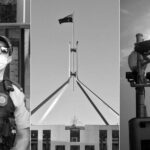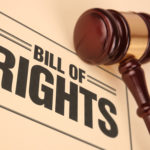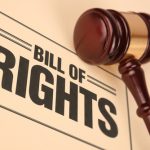The Federal Government Does Not Want a National Bill of Rights

Tensions are high in the Greater Sydney region as it continues on through its fifth week of a lockdown designed to curb the spread of the COVID-19 delta variant that’s currently circulating within the community.
Questions are being asked about whether the government has a right to impose the restrictions on movement and association that it has, which then leads to claims that those in power may have encroached upon citizens’ human rights in imposing these restrictions.
Although, debates around rights and protections against infringements upon them are somewhat stymied in this country, as, right now, Australia remains the only western liberal democracy that fails to have a piece of legislation that establishes and upholds the rights of the people.
Indeed, while the Australian Constitution is often cited as protecting rights, it upholds very few.
Section 41 contains the right to vote. Section 51(xxxi) makes it a requirement that if the state acquires a person’s property, it must do so on just terms. Section 80 ensures trial by jury. Section 116 establishes freedom of religion. And the High Court found in 1992 that there is an implied right to freedom of political communication within the founding document.
The US bill of rights is enshrined in its constitution, while, over recent decades, the UK, Canada and New Zealand, have all enacted human rights bills.
So, why doesn’t Australia have a bill that protects the rights of all?
Racist origins
As former High Court Justice Michael Kirby explained in a 1994 article, at the time the Australian Constitution was being drafted in the late 1890s, there was a proposal made at the Constitutional Conventions for a bill of rights to be included within the founding document.
A member of the Australasian Federation Convention constitutional committee Richard O’Connor put forth the idea of embedding rights in the Constitution, however fellow member Sir Isaac Isaacs opposed the idea. And the proposal was put to the vote, with 23 opposing and 19 in support.
As Kirby notes, there were concerns that a bill of rights would undermine some of the “discriminatory provisions of the law of that time”, especially those that “disadvantaged Aboriginal people and the Chinese in Australia”.
“We are a country which began at federation with a commitment to racism,” human rights lawyer Geoffrey Robertson QC recently remarked in the Women and Children First podcast.
“I’m afraid all but one of our founding fathers, the people who produced our constitution, thought like Pauline Hanson.”
No political will
The push for a bill of rights didn’t end with the drafting of the Constitution, however. It’s been raised consistently over the decades since.
Most recently, Independent MP Andrew Wilkie introduced two private members bills that sought to establish an Australian bill of rights: once in 2017 and again in 2019.
But, as former NSW Council for Civil Liberties (NSWCCL) president Stephen Blanks told Sydney Criminal Lawyers in 2017, an underlying reason for the major parties not being keen on passing such a bill is it would place restrictions on their power whilst in office.
The Rudd government convened the 2008 Brennan committee to inquire into enacting a statutory bill of rights. In opposition, the federal Coalition was vocally against any proposal to do so.
As human rights barrister Julian Burnside pointed out on the 10th anniversary last year, despite the committee having recommended a bill of rights be established, Kevin Rudd announced it wouldn’t be happening on 21 April 2010.
And in something of an admission of the value of a rights bill – except for when it comes to limiting those in power – then PM John Howard expressed his “very strong support” for an Iraqi bill of rights in 2004, even though he’d previously spoken out against establishing a local bill.







